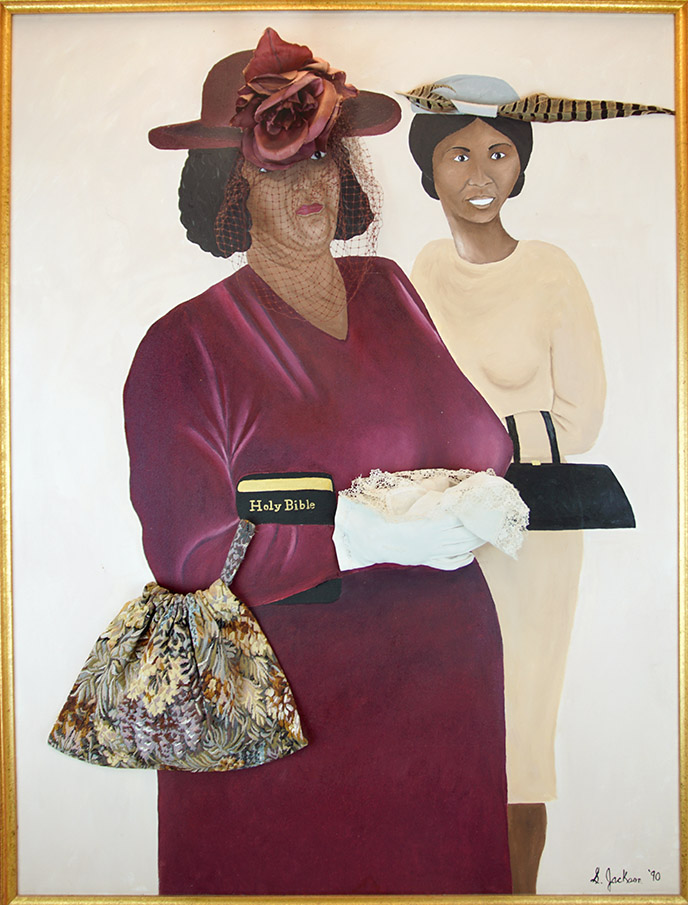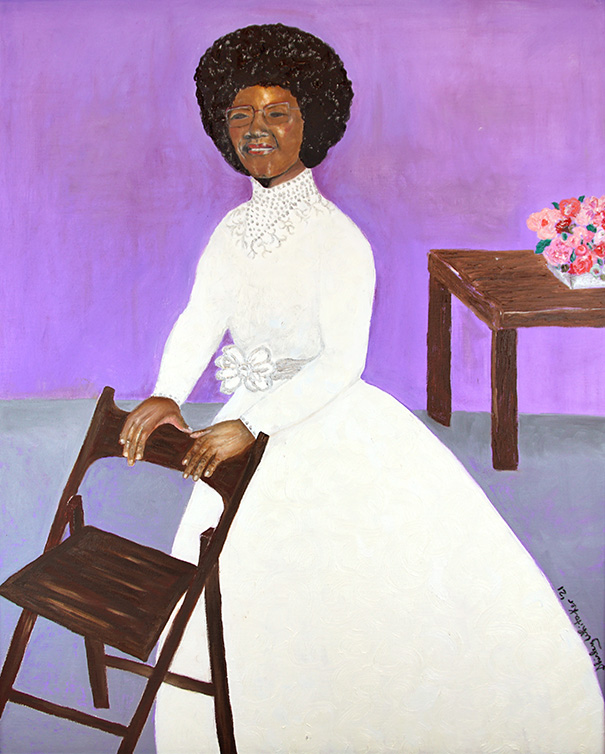SHIRLEY JACKSON WHITAKER: An Artist’s Reflection on African-American Life, Culture, and Trials
Bromer Gallery • Boston, MA • gallery.bromer.com • Through March 18, 2022
The title says it all, yet even that does not prepare the viewer for the rich experience that awaits when visiting the exhibit at the Bromer Gallery, an extension of Bromer Booksellers. The gallery features original art, executed by artists whose work is centered upon the idea of the book as art, often with social justice as a theme.
Ashes to Ashes, Whitakers’s book that chronicles the lives of African Americans who were lynched, sits in a glass case. The hand-bound grey volume is open, showing a portrait of a lynching victim, etched by Shirley Jackson Whitaker. The cover of the book is of hand-tooled and painted leather, carved by the late Winfred Rembert (who passed in April, 2021), himself a survivor of a lynching in the ’60s. Whitaker and Rembert are both from South Georgia and she credits him with influencing her use of color and acknowledging the unique gifts of their southern heritage.
Whitaker interviewed Rembert in her award-winning film, Ashes to Ashes. In the gallery, a 5′ tall broadside of a twisted tree is etched with over 4,000 names of lynching victims researched by scholars Amy Bailey, Stewart Tolnay, and E. M. Beck. The artist worked with Michael Kuch of Double Elephant Press to produce the book and the broadside, which are included in the Library of Congress. Both works bear witness to the painful historical past, and also stand as witness to the scenes of African American life that Whitaker has lovingly and powerfully documented.
Shirley Jackson Whitaker is a rare combination of artist and physician. She learned printmaking from Leonard Baskin and studied medicine at Yale. Portraiture comes naturally to her—and in the exhibit, there is a range of expression, from delicate drawings to bold paintings and carefully rendered etchings. The gallery literally vibrates with the energy of the lives portrayed.

Church Ladies is a 45 x 30″ portrait of the remembered women of her youth, in their Sunday dress. Painted in flat, even tones, the women come alive with three-dimensional additions. One sports a rose in her hat, complete with veil. Her white-gloved hand holds a lace handkerchief. A stuffed flower tapestry purse complements the painted gilt-edged bible in the crook of her arm. Both the seriousness and the joy of the Sunday ritual is honored.
The entire exhibit is a celebration of African American life. Although there are etchings of well-known figures like Toni Morrison and Gordon Parks, more often the subjects are not famous. Many are of individuals that Whitaker has met or known personally. In a series of drawings done during Covid, Little Girl with Plaits stands out with her mischievous eyes and broad smile. Her plaits fly out around her head like an energetic aura. Keisha is deeply introspective, with a delicate use of shading from the lightest of greys to black. In contrast to Little Girl’s wild plaits, her braided hair is gathered in a fashionable topknot on her head.
Lady Shelling Peas also has a concentrated interior look as she meditatively goes about her task. Full fields form the backdrop of the painting, which becomes a portrayal of a way of life, lived with decorum and restraint. Shirley Chisholm celebrates a proud, smiling younger Chisholm in a fantastically textured and patterned dress. The thick oil paint looks as if it has been carved, like Rembert’s tooled leather.

The gallery pulsates with energy. The soul of the artist’s sensibility is palpably present. She is a thoughtful observer and celebrates the famous and the ordinary with equal attention and grace, as in the paintings, The Checkerboard Player and a boy’s First Cut. The mood is a celebration of African American life, carrying undertones of a painful history inevitably woven into the whole.
Martin Luther King’s words come to mind, “The arc of the moral universe is long, but it bends towards justice.” This exhibit is prescient in the historic moment in which the Black Lives Matter movement has reaffirmed the necessity of looking into the eye of history to find the insight necessary to inform our present issues. Shirley Jackson Whitaker is willing to take a hard look into the past, and equally willing to celebrate the strength and persistence that African Americans have shown in forging strong community connections which sustain their cultural and spiritual life.
—B. Amore
